Research Article
Aim & Scope
Danisname, which started its publication life on June 26, 2020 and published its first issue on September 20, 2020, consists of scientific articles, compilations, critiques, translations and doctoral thesis abstracts produced in all fields of Humanities and Social Sciences, especially Theology, Philosophy, Sociology, History, International Relations, International Law, Economics, Politics and Security. It is a peer-reviewed journal that submits the studies to peer-review, publishes the articles that have been received the publishable approval as a result of the peer-review, and have been decided to be published by the Editorial Board in the online environment. Danisname does not accept more than one article application from an author in the same period. Published twice a year, periodically on September 20 and March 20, the Danisname attaches great importance to the dissemination of qualified scientific research and aims to deliver these products to interested readers, individuals, and institutions that support the development of science. Danisname, which carries out the processes in accordance with publication ethics and service quality, aims to indirectly contribute to the academic training of young researchers besides being scanned in international indexes by publishing articles with high scientific value. Regardless of whether the article is published or not, it is thought that all peer-review reports will also train the researcher in terms of her/his ability to conduct scientific work.
Danisname is a peer-reviewed journal that publishes scientific studies such as articles, compilations, critiques, translations and doctoral thesis abstracts produced in all fields of Humanities and Social Sciences, especially in Theology, Philosophy, Sociology, and History.
Subject Category
Social Sciences: Sociology, Politics, Internatioal Relations, Internatioal Law, Security, Economics
Humanities: History, Philosophy, Religion, Theology
Library of Congress/LCC Subject Category: Philosophy. Psychology. Religion. Philosophy (General)
Keywords: Religion, Philosophy, History, Sociology, Turkey
Keywords
Humanities and Social Sciences, History, Religion, Philosophy, Sociology, Politics, Internatioal Relations, Internatioal Law, Security, Economics, World, Culture, Language and Literature, Literature, Art, History of Religions, History of Islam, Tafsir, Hadith, Fiqh, Kalam, Sufism, Arabic Language, Philosophy of Religion, Sociology of Religion, Psychology of Religion.
Publishing Period
Danisname is a peer-reviewed scientific journal published by Global Security & Strategy Institute (GSSI) periodically, on 20 September and 20 March, since 2020.
Publication Processes
It is necessary to wait an average of 10 weeks from article submission to publication.
Access Policy
Danisname is an open access, peer-reviewed journal published twice a year in September and March. Article acceptance dates for the September issue are April 1 - July 31; for the March issue, it is from October 1 to January 31.
Target Audience
The target audience of Danisname journal is academicians who continue their research in the field of social and human sciences and academic volunteers who are interested in this field.
Copyright
The copyrights of the works published in the journal Danisname belong to their authors. The authors allow the intellectual work they sent to be published by Danisname under a Creative Commons Attribution-NonCommercial 4.0 International (CC BY-NC 4.0) license.
Wage Policy
PUBLISHING FEE (article processing fees, editorial processing fees, language editing fees, color fees, submission fee, page fee, membership fee, print subscription cost, other additional fees, other fees) is not required for article publication in this journal under any name. All expenses of the journal are paid by the publisher.
Publication Ethics
It complies with Press Law, Intellectual and Artistic Works Law and Higher Education Institutions Scientific Research and Publication Ethics Directive. It has also adopted the International Ethical Publishing Principles published by the Committee on Publication Ethics (COPE), Directory of Open Access Journals (DOAJ), Open Access Scholarly Publishers Association (OASPA) and World Association of Medical Editors (WAME).
Archiving Policy
Articles published in this journal are archived digitally in LOCKSS. The LOCKSS system has permission to collect, preserve and present this access Archive Unit.
Author Guidelines
Duties and Responsibilities of Authors
Authorship and Contribution
Authorship should be limited to those who made significant contributions to the conception, design, conduct, or interpretation of the study. All significant contributors should be listed as co-authors. If there are minor contributors, e.g. language editing, they should be acknowledged in the acknowledgements section. The corresponding author should ensure that all co-authors have seen and approved the final version of the manuscript and agree to its submission for publication. Authors are expected to carefully review the list and order of authors before submitting their manuscript and to provide the final author list at the time of original submission. Only in exceptional circumstances will the editor consider the addition, deletion, or reorganisation of authors after the manuscript has been submitted. All authors must agree to any such addition, deletion or reorganisation. Authors take joint responsibility for the work.
Author Change Requests
Addition, deletion or rearrangement of author names in the author list can only be made before the manuscript is accepted and only if approved by the Editor of the journal.
If such a change is requested, the Editor will request from the responsible author (a) the reason for the change in the author list and (b) written confirmation (e-mail) from all authors that they agree to the addition. Only in exceptional cases will the Editor consider the addition, deletion or reorganisation of authors after the article has been accepted.
Article Writing
Authors of original research papers should address the topic in an original way and with an objective discussion. The paper should include sufficient detail and references to allow others to replicate the work. Fraudulent or knowingly false statements constitute unethical behaviour and are unacceptable.
Originality
The author should provide assurance that the article is original, has not been previously published elsewhere, and is not under consideration for publication elsewhere, in another language.
Using Original Sources and Citation
Authors must ensure that they have written entirely original work and, if they have used the work or words of others, that this is properly cited. Privately obtained information, such as in conversations, correspondence or discussions with third parties, should not be used without the express written permission of the source.
Data Access and Preservation
Authors may be asked to provide research data supporting their articles for editorial review and/or to comply with the journal's open data requirements. Authors should be prepared to provide public access to such data, if possible, and to retain such data for a reasonable period after publication. The journal recommends uploading research data to TUBITAK's Aperta Portal.
Multiple and Simultaneous Broadcasting
An author should not publish an article containing the same research in more than one journal. It is unethical to submit the same article to more than one journal at the same time. An author should not submit a previously published article for consideration in another journal, except in the form of an abstract.
Publication of Studies Based on Questionnaires and Interviews
For research in all disciplines that require ethics committee approval (ethics committee approval must be obtained, this approval must be stated and documented in the article. In researches requiring ethics committee approval, information about the approval (name of the committee, date and number) should be included in the method section, as well as on one of the first/last pages of the article; in case reports, information on the signature of the informed consent form should be included in the article.
Conflict of Interest
Any financial or other interest that may cause the person to be conflicted in his/her work, significantly impair his/her objectivity, or provide an unfair advantage in favour of any person or organisation. All sources of financial support received during the conduct of the research and preparation of the manuscript and the role of sponsors in the study should be disclosed. If there is no source of funding, this should also be indicated. Examples of potential conflicts of interest that should be disclosed include consultancies, salaries, grants. Potential conflicts of interest should be disclosed at the earliest possible stage.
Error Reporting
When an author notices a significant error or inaccuracy in his/her published work, he/she should notify the journal immediately. It is also the author's obligation to co-operate in withdrawing or correcting the manuscript if deemed necessary by the editor. If the editor or publisher learns from a third party that a published work contains errors, it is the author's obligation to co-operate with the editor, including informing the editor.
Image Integrity
It is unacceptable to enhance, darken, move, remove or add a specific feature in an image. Authors must adhere to the policy for graphic images implemented by the journal.
Article Preparation
Language: Turkish, English
The language of the journal is Turkish and English.
Article Types: Research Article - Book Review
The journal publishes Research Articles and Book Reviews. There is no word limit for research papers. However, we advise authors to be as concise as possible for dissemination of the work.
Article Format: MS Word Template
Image Format: JPEG Minimum 300 dpi
Citation Style: Chicago Manual of Style or APA Citation System
Articles submitted for publication should be between 4000-8000 words.
The abstract of the article should be 150-200 words when it is first sent; when the article is accepted to be suitable for publication as a result of the referee process, an English abstract of 500-750 words for Turkish articles and a Turkish abstract of 500-750 words for English articles should be prepared and sent.
In Turkish writing, TDK spelling guide and TDK current dictionary are taken as basis. However, technical terms of the scientific field that are not included in the TDK dictionary are written as generally accepted in the literature of the relevant discipline. It is not obligatory to follow transcription rules except when required by the study. Extensions in Arabic words are indicated with capped â, î, û.
Text: It should be written in Microsoft Office Word programme.
Font Character: Times New Roman.
Page dimensions, paragraph, font size, line spacing: Studies should be written in Microsoft Word programme with at least 2.5 cm margins, the entire text should be written in Times News Roman font, 1 cm. paragraph indentation, 10 pt. and 1.2 line spacing; footnotes should be written in 9 pt. and single line spacing.
Tables and Figures: Tabular texts should be written in TNR font, 8-point font size and aligned on both sides.
Heading Format: It should be in Decimal System.
Author Changes: Only processed before the manuscript is accepted. Authors should carefully review the list and order of authors before submitting their manuscript and provide the final author list at the time of original submission.
Source Citation Style
Manuscripts should be prepared according to the Chicago Manual of Style or APA Citation System, depending on the discipline preference.
The Chicago Manual of Style
https://www.chicagomanualofstyle.org/tools_citationguide/citation-guide-1.html
Application Examples
ARTICLE
a) Printed Article
Muhammet Fatih Kılıç, "From Ibn Sīnā to Abharī, the Emergence of the Distinction between the Complete and the Incomplete Cause", Nazariyat: Journal for the History of Islamic Philosophy and Science 4, no. 1 (2017): 69.
Kılıç, "Ibn Sīnā'dan Ebhari'ye Tam Illet-Nâkıs Illet Distinction's Emergence," 71.
Bibliography: Kılıç, Muhammet Fatih. "From Ibn Sīnā to al-Abharī, the Emergence of the Distinction between the Complete and the Inessential". Nazariyat: Journal for the History of Islamic Philosophy and Science 4, no. 1 (2017): 69-90.
b) Online Article
Ilyas Canikli, "The Limits of the Prophet's Knowledge According to the Qur'an", Journal of Turkish Theological Studies 4, no. 1 (2020): 9, accessed: 21 June 2020, https://dergipark.org.tr/tr/pub/tiad/issue/54509/739448.
Canikli, "The Limits of the Prophet's Knowledge According to the Qur'an", 25.
Bibliography: Canikli, Ilyas. "The Limits of the Prophet's Knowledge According to the Qur'an". Turkish Journal of Theological Studies 4, no. 1 (2020): 6-32. Accessed: 21 June 2020, https://dergipark.org.tr/tr/pub/tiad/issue/54509/739448.
BOOK
a) Single Authored Book
M. Hayri Kırbaşoğlu, Alternative Hadith Methodology (Ankara: Otto Yayınları, 2019), 23.
Kırbaşoğlu, Alternative Hadith Methodology, 54.
Bibliography: Kırbaşoğlu, M. Hayri. Alternative Hadith Methodology. Ankara: Otto Publications, 2019.
b) Book with Two Authors
Ali Osman Kurt and Dursun Ali Aykıt, History of Religions (Ankara: Bilimsel Araştırma Yayınları, 2019), 32.
Kurt and Aykıt, History of Religions, 76.
Bibliography: Kurt, Ali Osman and Dursun Ali Aykıt. History of Religions. Ankara: Scientific Research Publications, 2019.
c) Book with Three or More Authors
Bekir Topaloğlu et al., Principles of Belief in Islam (Istanbul: Marmara University Faculty of Theology Foundation Publications, 1998), 17.
Topaloğlu et al, Principles of Belief in Islam, 65.
Bibliography: Topaloğlu, Bekir, Y. Şevki Yavuz and İlyas Çelebi. Principles of Belief in Islam. Istanbul: Marmara University Faculty of Theology Foundation Publications, 1998.
d) Translated Book
Robert Wisnovsky, Ibn Sīnā Metaphysics, trans. İbrahim Halil Üçer (Istanbul: Klasik Yayınları, 2010), 52.
Wisnovsky, Avicenna's Metaphysics, 173.
Bibliography: Wisnovsky, Robert. Avicenna's Metaphysics. trans. İbrahim Halil Üçer. Istanbul: Klasik Publications, 2010.
e) Book Chapter (Copyright)
Murat Demirkol, "Nasiruddin Tusi", Doğudan Batıya Düşüncenin Serüveni, ed. Bayram Ali Çetinkaya (İstanbul: İnsan Yayınları, 2017), 6: 811.
Demirkol, "Nasiruddin Tusi", 6: 822.
Bibliography: Demirkol, Murat. "Nasiruddin Tusi". In The Serüveni of Thought from East to West, ed. Bayram Ali Çetinkaya, 6: 811-844. Istanbul: İnsan Yayınları, 2017.
f) Book Chapter (Translation):
Rudolph Ulrich, "The Emergence of Maturidism", trans. Ali Dere, in Imam Maturidi and Maturidism, ed. Sönmez Kutlu (Ankara: Kitabiyat Yayınları, 2003), 298.
Ulrich, "The Emergence of Maturidism", 299. Bibliography: Ulrich, Rudolph. "The Emergence of Maturidism". trans. Ali Dere, Imam Maturidi and
In Maturidism, ed. Sönmez Kutlu, 295-304. Ankara: Kitabiyat Publications, 2003.
g) Tahkik (Ed. Crit.):
Abū Ḥāmid Muhammad al-Ghazālī, al-Iktisād fi al-i'tikād, thk. Abdullah Khalilī (Beirut: Dāru al-kutub al-ilmiyya, 2004), 87.
al-Ghazālī, al-Iktisād fi al-i'tikād, 91.
al-Ghazālī, Abū Hamid Muhammad. al-Iktisād fi al-i'tikād. thk. Abdullah Khalīlī. Beirut: Dâru al-kutub al-ilmiyye, 2004.
ANSYCYCLOPEDY
a) Encyclopaedia-Matbu
Şükrü Özen, "Hilāf", Türkiye Diyanet Vakfı İslam Ansiklopedisi (Ankara: TDV Publications, 1998), 17: 527.
Özen, "Hilāf", 538.
Bibliography: Özen, Şükrü. "Hilāf". Türkiye Diyanet Vakfı İslam Ansiklopedisi. 17: 527-538. Ankara: TDV Publications, 1998.
b) Encyclopedia-Web
Şükrü Özen, "Hilāf", Türkiye Diyanet Vakfı İslam Ansiklopedisi (Access: 19 June 2020).
Özen, "Hilāf".
Bibliography: Özen, Şükrü. "Hilāf". Türkiye Diyanet Vakfı Islam Encyclopedia. Accessed: 19 June 2020. https://islamansiklopedisi.org.tr/hilaf
TEZ
Ayşe Uzun, "Hijri First Four Centuries Tafsir-Dictionary Relationship" (PhD dissertation, Ankara Yıldırım Beyazıt University, 2019), 42.
Uzun, "Tafsir-Dictionary Relationship in the First Four Centuries of Hijri", 74-78.
Bibliography: Ayşe Uzun. "Tafsir-Dictionary Relationship in the First Four Centuries of Hijri". PhD thesis, Ankara Yıldırım Beyazıt University, 2019.
WRITTEN WORK
Hüseyin V âiz Kâşifî, Ahlâq-ı Muhsinî, Süleymaniye Ktp., Ayasofya, nr. 2829, 21a.
Kâşifî, Ahlâq-ı Muhsinî, 35b-36a.
Bibliography: Kâşifî, Hüseyin Vâiz. Ahlâq-i Muhsinî. Ayasofya, nr. 2829, Süleymaniye Library.
ARCHIVE DOCUMENT
Prime Ministry Ottoman Archives, Irade Mesâil-i Muhimme, 2079.
Prime Ministry Ottoman Archives, Irade Mesâil-i Muhimme, 2079.
Bibliography:
Prime Ministry Ottoman Archives, Irade Mesâil-i Mühimme, 2079.
WEBSITE
"Google Privacy Policy", last updated: March 11, 2009, http://www.google.com/intl/en/privacypolicy.html.
"Google Privacy Policy".
Source: Google. "Google Privacy Policy". Last updated: 11 March 2009.
http://www.google.com/intl/en/privacypolicy.html.
For APA 6th Edition examples, the following link can be used:
https://library.ihu.edu.tr/erisim-ve-yardim/apa_tr
Final Checklist
It is hoped that this list will be useful during the final check of the manuscript before it is uploaded to the journal system.
Make sure that the following items are present:
Author information added.
Email address
Full postal address
Telephone number
All necessary files have been uploaded.
Article text
Copyright Agreement
The article has been "spell-checked" and "grammar-checked".
All references mentioned in the bibliography are cited in the text and vice versa.
Submit Article
The account of the corresponding author of the study should be used in the submissions. All correspondence regarding the application is sent to the corresponding author by e-mail sent through the journal system.
When uploading the manuscript file, make sure that this file does not contain any elements that will decipher the identity of the author due to the double-blind review process.
Files You Need to Upload Separately:
Full Manuscript
Article Process Tracking
Ethical Principles and Publication Policy
Publication Ethics Principles
Publication Ethics can be defined as a self-regulatory mechanism that insists on integrity on behalf of authors, reviewers and publishers to establish higher standards of editorial processing. Ethical standards for publication exist to ensure high quality scientific publications, public confidence in scientific findings, and respect for people's opinions.
Peer-reviewed studies are studies that support and actualise the scientific method. At this point, it is of great importance that all parties involved in the publication process (authors, readers and researchers, publisher, referees and editors) comply with ethical principles. Danisname journal adheres to national and international standards on research and publication ethics. It complies with the Press Law, the Law on Intellectual and Artistic Works and the Directive on Scientific Research and Publication Ethics of Higher Education Institutions. Danisname has adopted the International Ethical Publishing Principles published by the Committee on Publication Ethics (COPE), Directory of Open Access Journals (DOAJ), Open Access Scholarly Publishers Association (OASPA) and World Association of Medical Editors (WAME). It also undertakes to comply with the decisions of the Turkish Editors' Workshop.
Correction, Withdrawal, Expression of Concern
Editors may consider publishing a correction if minor errors are detected in the published article that do not affect the findings, interpretations and conclusions. Editors should consider retracting the manuscript if there are major errors/violations that invalidate the findings and conclusions.
Editors should consider issuing a statement of concern if there is a possibility of research or publication misconduct by the authors; there is evidence that the findings are unreliable and that the authors' institutions have not investigated the incident; or the potential investigation appears unfair or inconclusive. COPE and ICJME guidelines regarding correction, retraction, or expression of concern are taken into account.
Authorship and Contribution
After the manuscript is submitted to the Journal for publication, none of the authors' names may be removed or a new name may be added without the written permission of all authors. In addition, the order of authors cannot be changed.
Contribution Rate Declaration
In the article, the contribution rate declaration of the researchers, the statement of support and acknowledgement, if any, and the conflict of interest declaration should be stated. The MS Word template of the manuscript, including the declaration table, can be downloaded here.
Publication of Studies Based on Surveys and Interviews
Danisname adopts the principles of the Committee on Publication Ethics (COPE) "Code of Conduct and Best Practice Guidelines for Journal Editors" and "Code of Conduct for Journal Publishers" to provide ethical assurance in scientific periodical publishing. In this context, the following points should be complied with in the studies submitted to the journal:
For research in all disciplines that require ethics committee approval (ethics committee approval must be obtained, this approval must be stated and documented in the article.
In researches requiring ethics committee approval, information about the permission (name of the committee, date and number) should be included in the method section, as well as on one of the first/last pages of the article; in case reports, information on the signature of the informed consent form should be included in the article.
Special and Supplementary Issue Publication Procedure
A special issue can be published once a year upon the request of the Editorial Board. All articles published in abstract and supplementary issues are subject to a double blind peer review process.
Republishing
Republishing is the publication of the same article or substantially similar articles in more than one journal. The editor sends such an article back without reviewing it. Thereafter, the editor may impose an embargo for a certain period of time on the author who has attempted to republish, publicise this situation in the journal in which the author has previously published (perhaps by simultaneous announcement with the editor of the journal that published the previous article), or apply all of these measures together.
Simultaneous submission of the same work to more than one journal
Authors may not submit the same article to more than one journal at the same time. If the editor learns of possible simultaneous submission, he/she reserves the right to consult with the other editor(s) receiving the manuscript. In addition, the editor may return the manuscript without review or reject the manuscript without considering the reviews, or take this decision in discussion with the other editor(s) involved, and may decide not to accept submissions from authors for a certain period of time. It may also write to the authors' employers or take all of these measures together.
Suicide Prevention Control
Plagiarism is presenting the ideas, methods, data, applications, writings, figures or works of others as one's own work, in whole or in part, without citing their owners in accordance with scientific rules.
Danisname scans all submitted articles to prevent plagiarism. Studies submitted for review are checked for plagiarism using the software. The similarity rate is expected to be less than 20%. The main measure of similarity is the author's compliance with the rules of citation and citation. If the similarity rate is 1%, but citation and quotation are not done properly, plagiarism may still be in question. In this respect, citation and quotation rules should be known and carefully applied by the author.
Plagiarism, duplication, false authorship/confessed authorship, research/data fabrication, article slicing, sliced publication, copyright infringement and concealment of conflict of interest are considered unethical behaviours. All articles that do not comply with accepted ethical standards are removed from publication. This includes articles containing possible irregularities and non-conformities detected after publication.
Forgery
To produce data that is not based on research, to edit or change the work presented or published on the basis of unreal data, to report or publish them, to show a research that has not been done as if it has been done.
Falsifying research records and data obtained, showing methods, devices and materials that were not used in the research as if they were used, not evaluating data that do not comply with the research hypothesis, manipulating data and/or results to fit the relevant theory or assumptions, falsifying or shaping the research results in line with the interests of the persons and organisations supported.
Protection of Personal Data of Participants
The Advisory requires that all research involving personal or sensitive data or materials relating to human participants that are not legally publicly available be subject to formal ethical review.
Addressing Allegations of Research Misconduct
Danisname adheres to COPE's Ethical Toolkit for a Successful Editorial. Danisname editors will take measures to prevent the publication of manuscripts in which plagiarism, citation manipulation, data falsification, data fabrication, and other research misconduct has occurred. In no case will Danisname or its editors knowingly allow such misconduct to occur. In the event that Danisname editors become aware of any allegations of research misconduct related to an article published in their journal, they will follow COPE's guidelines regarding allegations.
Ethical Violation Notifications
Readers can send an e-mail to Danisname (e-ISSN: 2717-9974) if they notice a significant error or inaccuracy in an article published in Danisname (e-ISSN: 2717-9974) or if they have any complaints about the editorial content (plagiarism, duplicate articles, etc.). We welcome applications as it will provide an opportunity for us to improve, and we will respond quickly and constructively.
Research Ethics Principles
Danisname journal observes the highest standards in research ethics and adopts the international principles of research ethics defined below. It is the responsibility of the authors to ensure that manuscripts comply with ethical guidelines.
The principles of integrity, quality and transparency should be ensured in the design, review of the design and conduct of the research.
The research team and participants should be fully informed about the purpose of the research, its methods and possible uses; the requirements and risks, if any, of participation in the research.
Confidentiality of information provided by research participants and confidentiality of respondents must be ensured. The research should be designed to protect the autonomy and dignity of the participants.
Research participants should take part in the research voluntarily and should not be under any coercion.
Harm to the participants should be avoided. The research should be planned in a way that does not put the participants at risk.
Research independence must be clear and explicit; if there is a conflict of interest, it must be stated.
In experimental studies with human subjects, the written informed consent of the participants who decide to participate in the research must be obtained. The consent of the legal guardian of children and those under guardianship or those with a recognised mental illness must be obtained.
If the study will be carried out in any institution or organisation, approval must be obtained from this institution or organisation that the study will be conducted.
In studies with a human element, it should be stated in the "method" section that "informed consent" has been obtained from the participants and ethics committee approval has been obtained from the institution where the study is conducted.
Price Policy
All expenses of the journal are covered by the publisher. The publication of articles and the execution of article processes in the journal are free of charge. No processing fee or submission fee is charged for articles submitted to the journal or accepted for publication. Danisname does not accept sponsorship and advertisements due to its publication policies.
Indexes
Journal Boards
Responsible Managing Editor
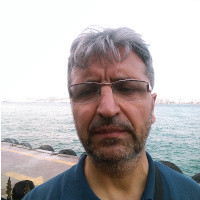
Editor in Chief

Murat Demirkol, born in 1969 in Tokat/Reşadiye, graduated from Ankara University Faculty of Theology in 1990. He completed his Master's degree in 1994 at the Institute of Social Sciences with a thesis titled "The Search for Truth According to Ibn Tufayl," and his Doctorate in 2007 at the same institute with a thesis titled "Nasiruddin Tusi's Ibn Sinaism." He worked as a teacher in the Ministry of National Education between 1990 and 2010. Since 2011, Demirkol has been a faculty member in the Department of Islamic Philosophy at Ankara Yıldırım Beyazıt University Faculty of Theology. He is married and has two children. Demirkol has published articles, papers, book chapters, original books, and translations on Islamic philosophy and ethics. Demirkol, who completed the TÜBİTAK 1001 project titled “An Examination of the Development and Originality of Philosophy within the Commentary Tradition of El-İşârât ve’t-Tenbîhât,” organized three International Symposiums: Philosophy in the 13th Century; Philosophy, Kalam, and Sufism in 14th-15th Century Islamic Thought; and Kemalpaşazâde (Ibn Kemal). Demirkol's prominent book and translation works include: Virtue Ethics in Islamic Thought; The Influence of Nasîreddin Tûsî on Moral Philosophy; Tûsî's Defense of Ibn Sina; Translation of Ibn Sînâ's Dânişnâme-i Alâî from Persian to Turkish; and Simplification of Kınalızâde's Ahlâk-ı Alâî from Ottoman Turkish to modern Turkish. Translation of Hüseyin Vaiz Kâşifî's Ahlâk-ı Muhsinî and Tûsî's Ahlâk-i Nâsırî from Persian into Turkish.
Editorial Assistants

Section Editors



https://unis.gop.edu.tr/akademisyen/muammer.bayraktutar

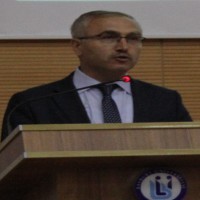
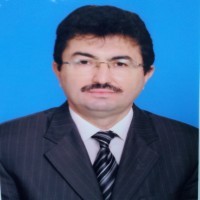
He is a faculty member at Ankara Yıldırım Beyazıt University, Faculty of Theology.


Sosyal Teoriler, Siyaset ve Din, Göç ve Din, Sosyal-Psikolojik Yaklaşımlar.
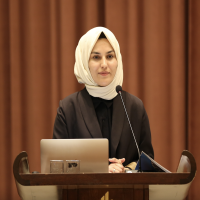


English Language Editor
Turkish Language Editor
Press and Index Editor

Advisory Board
Öz (Tuğrul TEZCAN)
Tuğrul Tezcan 1973 yılında Amasya'nın Merzifon ilçesinde doğdu. İlk, orta ve lise
eğitimini Merzifon'da tamamladıktan sonra Ankara Üniversitesinde Lisans eğitimi
aldı. Aynı üniversitenin Sosyal Bilimler Enstitüsün'de “Muhammed Mütevelli eş
Şa'râvî'nin Hayatı ve Tefsir Anlayışı” isimli teziyle Yüksek lisansı, “Kur'an'da Şûrâ
Kavramı ve Çağdaş” Yorumları isimli teziyle de Doktora eğitimini tamamladı. Bu
süre zarfında Diyanet İşleri Başkanlığında İmam-Hatiplik görevini üstlendi. 2012
yılında Karabük Üniversitesi İlahiyat Fakültesi Tefsir Anabilim Dalı’na öğretim üyesi
olarak atandı, 2019' da Doçent ünvanını aldı. 2025 yılından itibaren profesör ünvanıyla aynı üniversitede görevini
sürdürmektedir. Evli ve iki çocuğu bulunmaktadır.


Bilal Kemikli, Sivas’ta doğdu. Lisans eğitimini Ankara Üniversitesi İlahiyat Fakültesi’nde tamamladı; 1998'de doktor, 2002’de doçent ve 2008’de profesörlüğe yükseltildi. Ankara, Yüzüncü Yıl ve Süleyman Demirel Üniversitelerinde öğretim üyesi olarak çalıştı. Dekan olarak DPÜ İlahiyat Fakültesi’nin kurulmasına öncülük etti. Bir dönem BUÜ İlahiyat Fakültesi Dekanı olarak da görev yaptı. Halen Bursa İlahiyat Fakültesi’nde çalışmalarını sürdürmektedir.
Prof. Dr. Kemikli’nin eserlerinden bazıları şunlardır: Sun’ullah-ı Gaybî Dîvânı, Şair Şeyhülislam Ârif Hikmet Beyefendi, Oğlanlar Şeyhi Müfid ü Muhtasar, Dost İlinden Gelen Ses, Şiir ve İrfan, Sufi Aşk ve Ölüm, Şiir ve Hikmet, Şehir Hayat ve Dervîş, İnsan Deniz ve Hayat, Pîr Sultan Abdâl, Oğul Sen Sen Ol, Süleyman Çelebi ve Mevlid, Erzurumlu Bilge İmam Muhammed Lutfî Efendi, Mihenk, Memleket Yazıları, Kapı, Kıyıya Vuran Deniz, Kûşe-i Uzlet: Karantina Günlüğü, Ramazan Güzellemeleri, Âteş-i Aşk: Mesnevî Mektupları, Sufiyem Halk İçinde Yunus Emre ve Şiir Demleyen Coğrafya.

ÖZGEÇMİŞ
1966 yılında Ordu’da doğdu. İlkokulu, Mustafalı Köyü İlkokulunda bitirdi. 1985 yılında Ordu İmam Hatip Lisesi’nden mezun oldu. Aynı yıl, Ankara Üniversitesi İlahiyat Fakültesi’ne girdi. 1990 yılında bu fakülteden mezun oldu ve aynı yıl içerisinde Ankara Üniversitesi Sosyal Bilimler Enstitüsü Kelam-İslam Felsefesi Bölümü’nde yüksek lisansa başladı. Yüksek lisansını Hz. Peygamber’in “Mirac” olayı ile ilgili olarak yaptı. Doktorasını “İslam Kelamı’nda Kötülük Problemi” adlı teziyle tamamladı. Bu arada, 1995 yılı Haziran’ında daha önce yapmakta olduğu öğretmenlik görevinden ayrılıp Cumhuriyet Ü. İlahiyat Fakültesi Temel İslam Bilimleri Kelam Anabilim Dalı’na Araştırma Görevlisi olarak atandı. 1998 yılında Yardımcı Doçent, 2004 yılında da Doçent oldu. 2004/2005 akademik yılında, Milli Eğitim Bakanlığı’ndan burslu olarak Ürdün Üniversitesi’nin Dil Merkezi’nde yabancılar için hazırlanmış olan programa devam etti. 2009 yılında profesör oldu. 04.02.2013 tarihinde Cumhuriyet Ü. İlahiyat Fakültesi’nden naklen Yıldırım Beyazıt Üniversitesi İslami İlimler Fakültesi Temel İslam Bilimleri Kelam ve Mezhepler Tarihi Anabilim Dalına öğretim üyesi olarak geçti. Ardından 03/01/2018 tarihinde Ankara Sosyal Bilimler Üniversitesi İlahiyat Fakültesi Kelam Anabilim Dalına Öğretim Üyesi olarak atandı. Halen aynı anabilim dalında öğretim üyesi olarak çalışmaktadır. Aynı zamanda 2021 yılından itibaren Din İşleri Yüksek Kurulu Üyeliği görevini yürütmektedir. Kötülük problemi, insan hürriyeti, kader ve Mutezilenin Kur’an müdafaası gibi konular üzerinde çeşitli kitapları ve makaleleri bulunmaktadır.
Editorial Board

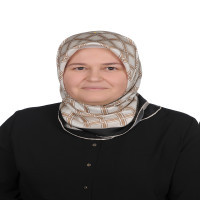
1977 yılında Antalya’da doğdu. İlk öğrenimini ve Liseyi Antalya’da okudu. 2002 yılında Süleyman Demirel Üniversitesi İlahiyat Fakültesi’nden mezun oldu. İbn Sînâ Felsefesinin Teleolojik Boyutları başlıklı doktora çalışmasını da 2010 yılında Marmara Üniversitesi Felsefe ve Din Bilimleri Bölümü’nde tamamladı. 2017 yılında Doçent oldu. 2023 yılında Profesör oldu. Halen Süleyman Demirel Üniversitesi İlahiyat Fakültesi İslâm Felsefesi Ana Bilim Dalı’nda öğretim üyesidir.
Uzmanlık alanı; İslâm felsefesi, Osmanlı düşüncesi, Türk-İslâm düşüncesi, ahlâk ve siyaset felsefesidir.


 Web
Web


Murat Demirkol, born in 1969 in Tokat/Reşadiye, graduated from Ankara University Faculty of Theology in 1990. He completed his Master's degree in 1994 at the Institute of Social Sciences with a thesis titled "The Search for Truth According to Ibn Tufayl," and his Doctorate in 2007 at the same institute with a thesis titled "Nasiruddin Tusi's Ibn Sinaism." He worked as a teacher in the Ministry of National Education between 1990 and 2010. Since 2011, Demirkol has been a faculty member in the Department of Islamic Philosophy at Ankara Yıldırım Beyazıt University Faculty of Theology. He is married and has two children. Demirkol has published articles, papers, book chapters, original books, and translations on Islamic philosophy and ethics. Demirkol, who completed the TÜBİTAK 1001 project titled “An Examination of the Development and Originality of Philosophy within the Commentary Tradition of El-İşârât ve’t-Tenbîhât,” organized three International Symposiums: Philosophy in the 13th Century; Philosophy, Kalam, and Sufism in 14th-15th Century Islamic Thought; and Kemalpaşazâde (Ibn Kemal). Demirkol's prominent book and translation works include: Virtue Ethics in Islamic Thought; The Influence of Nasîreddin Tûsî on Moral Philosophy; Tûsî's Defense of Ibn Sina; Translation of Ibn Sînâ's Dânişnâme-i Alâî from Persian to Turkish; and Simplification of Kınalızâde's Ahlâk-ı Alâî from Ottoman Turkish to modern Turkish. Translation of Hüseyin Vaiz Kâşifî's Ahlâk-ı Muhsinî and Tûsî's Ahlâk-i Nâsırî from Persian into Turkish.
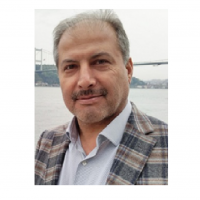
1963’de Adana-Kozan’da doğdu. İlk ve orta öğrenimini Kozan’da tamamladı. 1986’da Ankara Üniversitesi İlahiyat Fakültesinden mezun oldu. Antalya, Yozgat ve Ankara’da, MEB’e bağlı çeşitli okullarda Din Kültürü ve Ahlak Bilgisi Öğretmeni ve İHL Meslek Dersleri Öğretmeni olarak çalıştı. Ankara Üniversitesi Sosyal Bilimler Enstitüsünde “Mehdî Muhammed İbn Tûmert ve Muvahhidler Devleti’nin Kuruluşu” başlıklı teziyle Yüksek Lisans (1998), “Abdulmümin b. Ali Döneminde Muvahhidler Devleti” başlıklı teziyle de Doktora eğitimini tamamladı (2006). 2011 yılında Osmangazi Üniversitesi İlahiyat Fakültesi, İslâm Tarihi ve Sanatları bölümünde Yrd. Doç. olarak çalışmaya başladı. 2014’de doçent, 2019’da profesör oldu. Halen Osmangazi Üniversitesi İlahiyat Fakültesi, İslâm Tarihi ve Sanatları Bölümünde öğretim üyesi olarak çalışmaktadır. Çalışmaları daha çok Kuzey Afrika ve Endülüs’te hâkim olan Murabıtlar ve Muvahhidler devletleri tarihi (XI-XIII. yy.) üzerinde yoğunlaşmaktadır. Bunun yanında Siyer ve Hulefâ-i Râşidîn dönemiyle ilgili çeşitli çalışmaları da bulunmaktadır. Araştırma yaptığı alanlarla ilgili yayımlanmış ve devam eden kitapları, kitap bölümleri, makaleleri ile ulusal ve uluslararası sempozyumlarda sunulan tebliğleri bulunmaktadır.
Yayınlanmış Kitapları:
Mağrib Medeniyetinin Zirvesi Muvahhidler -Kuruluş Dönemi-Araştırma Yay. Ankara 2011.
Mağrib Medeniyetinin Zirvesi Muvahhidler, Halife Yakup Mansur Dönemi. Araştırma Yay. Ankara, 2013.
Hz. Ebu Ubeyde b. Cerrah. Beyan Yay. İstanbul, 2020.
Yusuf b. Taşfîn, Ensar Yay. İstanbul, 2022.

 Web
Web

He was born in 1969 in the Beyoğlu neighborhood of the Türkoğlu district of Kahramanmaraş. He graduated from Atatürk University Faculty of Science and Letters in 1990. In 1993, he started his academic career as a Research Assistant at Kırıkkale University, Faculty of Science and Letters. He completed his master's degree at Kırıkkale University Social Sciences Institute in 1998 and his doctorate at Selçuk University Social Sciences Institute in 2007. In 1995, he worked on scientific development at Amman University, Jordan, with a Ministry of Education Research Scholarship. In 2008-2011, He worked as a Dr. lecturer at Nevşehir University, Faculty of Science and Letters, Department of Turkish Language and Literature. He was a guest lecturer at Tuzla University in Bosnia-Herzegovina within the scope of TİKA Turcology Program in 2008-2009 and at St. Cyril and Methodius University in Skopje, Macedonia in 2009-2010. In 2010, he became the founding director of the Yunus Emre Cultural Center in Skopje, Macedonia. In 2011, he worked as a faculty member at Ankara Yıldırım Beyazıt University, Faculty of Humanities and Social Sciences. He became an associate professor in 2012 and a professor in 2017. He continues his academic studies at Ankara Yıldırım Beyazıt University, Faculty of Humanities and Social Sciences. He served as board and commission members and academic duties in various units of the Department, Faculty and University, and carried out administrative duties such as Head of Department, Dean and Vice Rector.

editor-in-chief.

Danisname is licensed under a Creative Commons Attribution-NonCommercial 4.0 International (CC BY-NC 4.0) License.





